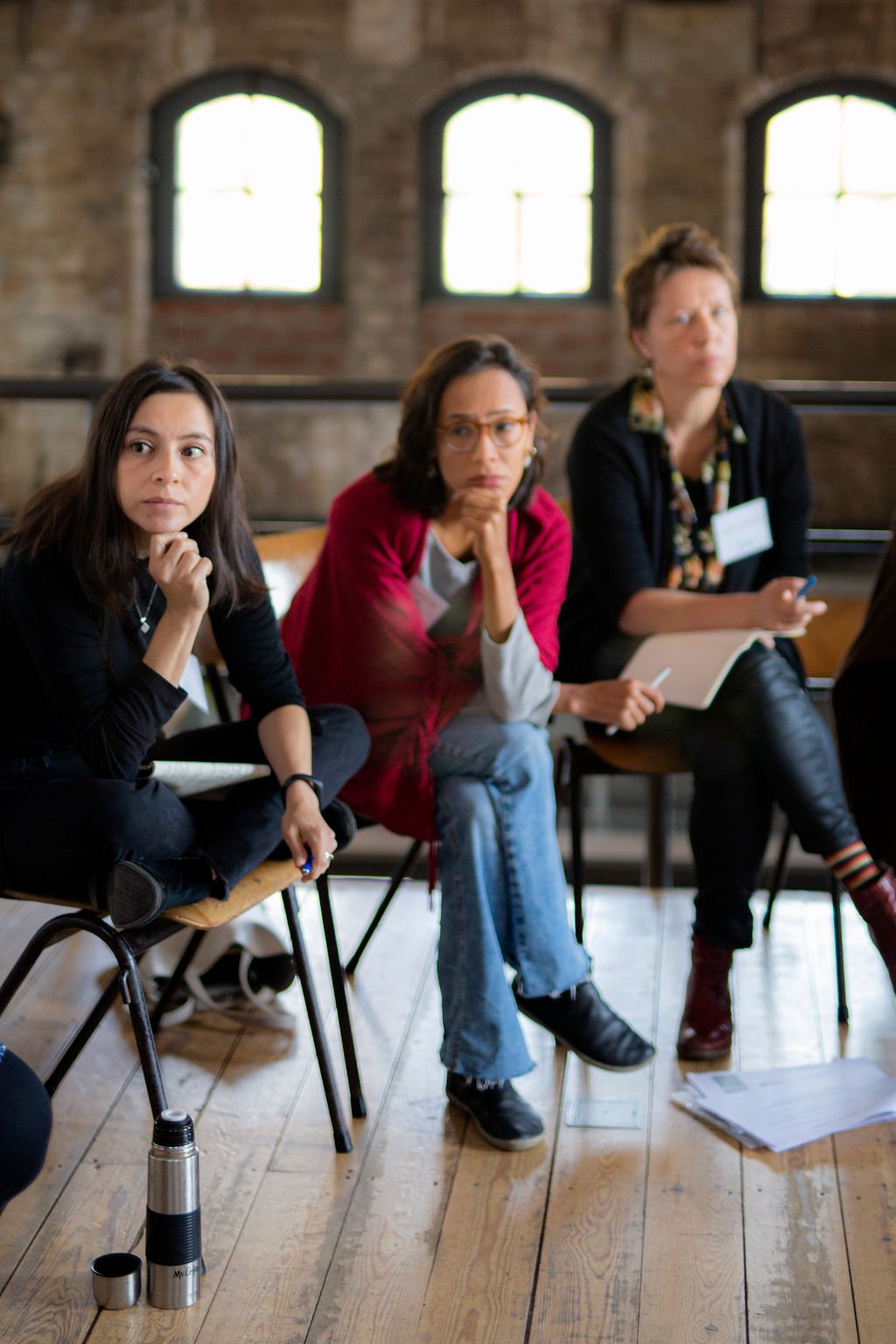
Sliding Scale
We work to make our programs as accessible as we can.
As a social enterprise, Spring aims to dismantle cost barriers that might prevent you from participating in our programs. We want to be as accessible as possible to those individuals and organizations working on the frontlines of social and environmental justice movements.
We offer a sliding scale with three tiers of program payment rates. This sliding scale takes into account the vast disparity in incomes and privilege in different parts of the world due to the historical and ongoing realities of the accumulation of wealth and power by a small group of people, and the costs of delivering our programs. We remain committed to economic justice for our clients, our community and the associates from around the world who deliver our programs.
We keep a number of program spots open at each rate. Learn more below and self-select into the appropriate rate, based on your income, life circumstances and other relevant experiences.
-1.jpg?width=1084&height=1082&name=IP_LC_2%20(42)-1.jpg)
Spring's sliding scale
-1.jpg)
Redistribution Rate
This is for organizations based in the Global North or with an annual budget above US$2 million. It’s also designed for individuals with access to wealth or with an annual income over US$70,000. Payment at this rate covers the costs of the program and allows for a contribution to support the participation of organizations and individuals with less access to wealth. The redistribution rate for our Financial Innovation and Resilience (FIRE) program is US$2,250. The redistribution rate for High Impact Meetings is US$625 and the rate for The Transformative Facilitator is US$2,500. For the Leadership Kitchen, this is US$300.
Full Cost Rate
This is for organizations with an annual budget above US$1-2 million. It’s also designed for individuals with an annual income of US$50,000 - US$70,000. The full cost rate for our Financial Innovation and Resilience (FIRE) program is US$1,750. The full cost rate for High Impact Meetings is US$500 and the rate for The Transformative Facilitator is US$2,000. For the Leadership Kitchen, this is US$200.
Solidarity Rate
This is for organizations with an annual budget of under US$1 million. It’s also designed for individuals with an annual income of under US$50,000. Payment at this rate covers 50% of total costs. The solidarity rate for our Financial Innovation and Resilience (FIRE) program is US$875. The solidarity rate for High Impact Meetings is US$375 and the rate for The Transformative Facilitator is US$1,500. For the Leadership Kitchen, this is US$100.
Don’t see an affordable rate?
If the Solidarity Rate is not affordable to you, please get in touch with us to let us know and we can discuss what might be possible. Please tell us which program you're referring to in your message.
What else should I consider to determine my rate?
As you decide what amount you should or can pay, the dynamics that you consider will vary depending on your personal or organizational circumstances.
If you are an organization, consider:
- How many participants would attend from your organization? We also offer discounts when more than three employees participate in a program.
- What budget does your organization have set aside for professional development?
- Do you have access to grants or funding that could support your team’s participation?
- Can you talk to your donors or funders about supporting institutional strengthening? .
- Can you talk to your fundraising team about including the costs of the program in their proposals?
If you are an individual, consider:
- Historical discrimination faced by your peoples.
- History and expectation of intergenerational wealth by your family.
- Whether you have chronic health needs or disabilities that have financial implications.
- Your financial situation: household income? Do you have savings or outstanding debt?
- How easy or secure it is for you to earn money.
- People who count on your financial livelihood (in your family, community, etc.).
- Whether you feel called to make a redistributive contribution.
- Whether it’s possible for your employer or funder to cover some or all of the costs.
- Whether you can fundraise for some or all your costs.
Class, privilege, oppression and income are complex and deeply personal experiences. You may see your experience reflected in different categories and considerations. We invite you to reflect authentically on the options and choose the one that will enable you and your communities to thrive.
